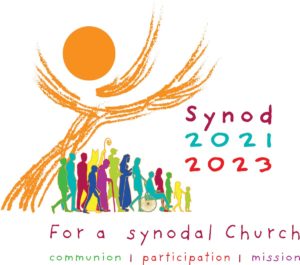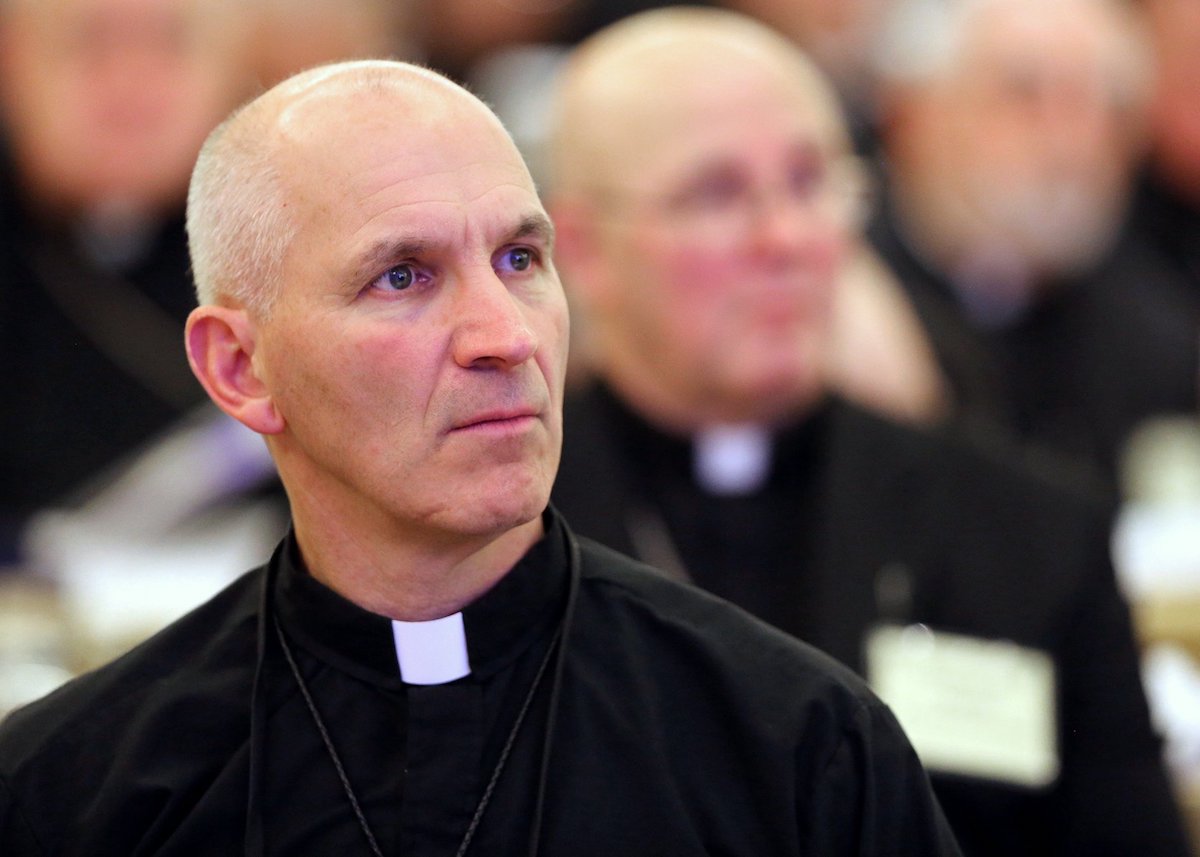By Bishop Steven R. Biegler, Catholic News Service

The call to be companions on the journey is prophetic. At a time when society is becoming more fractured, we are invited to discern how we might “walk together” more intentionally. Pope Francis posed this question prior to the war in Ukraine. Now the scenes of horrific violence and distressed people fleeing their homeland incite all humanity to ask: “How can we walk together as brothers and sisters?”
Nearly a year before the war erupted, the synodal document was formulated with that question in mind. In the synod, we are asked to recall how Jesus walked together with people, then to reflect on whether we are imitating his closeness to people.
The “vademecum” poses these questions: “In our local Church, who are those who “walk together?” Who are those who seem farther apart? How are we called to grow as companions? What groups or individuals are left on the margins?” (Vademecum, 5.4).
Pope Francis reminds us that Jesus was constantly reaching out to people on the margins. In the preparatory document for the synod, he wrote, “the work of evangelization and the message of salvation would not be comprehensible without Jesus’ constant openness to the widest possible audience, which the Gospels refer to as the crowd … Jesus’ interlocutor is the “people” of ordinary life, the “everyone” of the human condition, whom he puts directly in contact with God’s gift and the call to salvation.” (Preparatory Document, 18).
We need to constantly reflect on our fidelity to the mission of Christ. The synodal process calls us to step back and ask: Are we proclaiming the gospel to the widest possible audience? Are we journeying together with the people of ordinary life, like Jesus who attended to lepers, the blind, the crippled, and the poor? He told the parable of the good Samaritan because he did not want us to leave anyone alone on the side of the road.
Therefore, Pope Francis has asked us to hold gatherings for every facet of society. He is inviting all the baptized to participate in the synodal process, but he also wants us to listen to the “crowd,” including people who have left the practice of the faith, people of other faith traditions, or of no religious belief. We should be mindful of including those who may risk exclusion: women, the handicapped, refugees, migrants, the elderly and people living in poverty.
You might ask, “How could we ever accomplish such an all-encompassing participation in the synod?” Do not fret. This is not a time to complete the task, but a time for planting seeds. As stated in the preparatory document, “This synodal process need not be seen as an overwhelming burden that competes with local pastoral care. Rather, it is an opportunity to foster the synodal and pastoral conversion of each local Church so as to be more fruitful in mission.” The goal is to nurture the synodal journey as a way of life, not to complete it.
We are invited to be creative. For example, the Diocese of Cheyenne, Wyoming, has begun a conversation with the Eastern Shoshone and the Northern Arapaho people on the Wind River Indian Reservation. We are seeking to promote respectful interaction between Native Americans and other residents of Wyoming, so that we might learn from them and understand their perspective, to encourage ally building between the church and existing organizations. The process will take decades.
Over the past seven months, we have participated in Zoom meetings including diocesan leaders and Native Americans regarding the topic of boarding schools. Then we gathered in-person for an experiential session on intergenerational trauma titled “Repairers of the Breach,” which involved a historical review of government policies and boarding schools. Most importantly, we listened to Native Americans recount how this has adversely affected multiple generations. The experience gave everyone greater understanding and a deeper sense of solidarity.
In an analogous way, Catholics should see the synod as a kairos event to nurture “walking together,” not only in the Church but also in society. The synodal process can be a leaven for respectful listening as our nation addresses racial inequalities, the impasse over immigration, and other contentious political issues. What if we viewed the synodal process within the Church as a way of modeling respectful listening, which contrasts the political discourse often poisoned by angry partisan sentiments?
Then we would accomplish the goal which Pope Francis proposed when he said that the synod is intended to stimulate trust, to bind up wounds, to weave new and deeper relationships, to learn from one another, to build bridges, to enlighten minds, warm hearts, and restore strength to our hands for our common mission (PD, 32).







